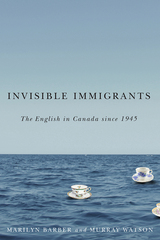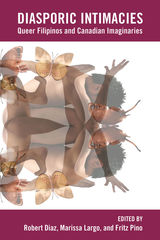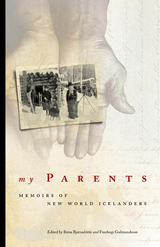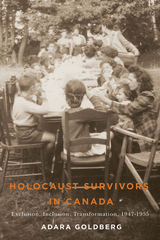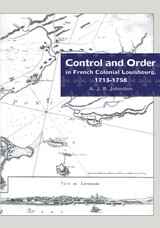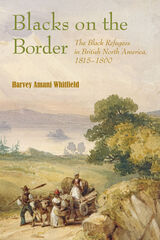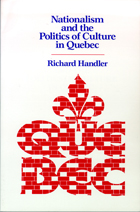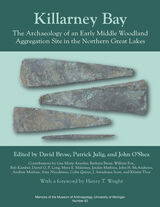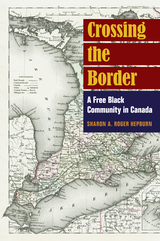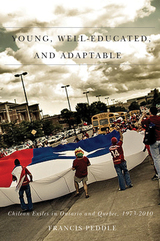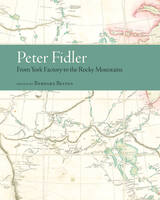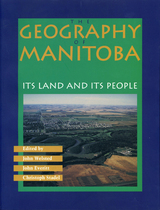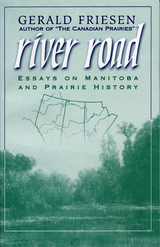Nationalism and the Politics of Culture in Quebec
University of Wisconsin Press, 1988
Paper: 978-0-299-11514-2 | Cloth: 978-0-299-11510-4
Library of Congress Classification F1053.2.H36 1988
Dewey Decimal Classification 306.409714
Paper: 978-0-299-11514-2 | Cloth: 978-0-299-11510-4
Library of Congress Classification F1053.2.H36 1988
Dewey Decimal Classification 306.409714
ABOUT THIS BOOK | AUTHOR BIOGRAPHY | REVIEWS
ABOUT THIS BOOK
Richard Handler’s pathbreaking study of nationalistic politics in Quebec is a striking and successful example of the new experimental type of ethnography, interdisciplinary in nature and intensively concerned with rhetoric and not only of anthropologists but also of scholars in a wide range of fields, and it is likely to stir sharp controversy.
Bringing together methodologies of history, sociology, political science, and philosophy, as well as anthropology, Handler centers on the period 1976–1984, during which the independantiste Parti Québéois was in control of the provincial government and nationalistic sentiment was especially strong. Handler draws on historical and archival research, and on interviews with Quebec and Canadian government officials, as he addresses the central question: Given the similarities between the epistemologies of both anthropology and nationalist ideology, how can one write an ethnography of nationalism that does not simply reproduce—and thereby endorse—nationalistic beliefs? Handler analyzes various responses to the nationalist vision of a threatened existence. He examines cultural tourism, ideology of the Quebec government, legislations concerning historical preservation, language legislation and policies towards immigrants and “cultural minorities.” He concludes with a thoughtful meditation on the futility of nationalisms.
Bringing together methodologies of history, sociology, political science, and philosophy, as well as anthropology, Handler centers on the period 1976–1984, during which the independantiste Parti Québéois was in control of the provincial government and nationalistic sentiment was especially strong. Handler draws on historical and archival research, and on interviews with Quebec and Canadian government officials, as he addresses the central question: Given the similarities between the epistemologies of both anthropology and nationalist ideology, how can one write an ethnography of nationalism that does not simply reproduce—and thereby endorse—nationalistic beliefs? Handler analyzes various responses to the nationalist vision of a threatened existence. He examines cultural tourism, ideology of the Quebec government, legislations concerning historical preservation, language legislation and policies towards immigrants and “cultural minorities.” He concludes with a thoughtful meditation on the futility of nationalisms.
See other books on: Cultural policy | Handler, Richard | Nationalism & Patriotism | Politics and culture | Québec (Province)
See other titles from University of Wisconsin Press





